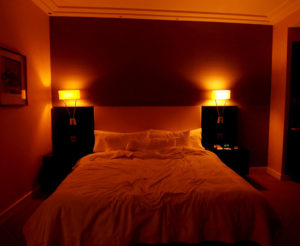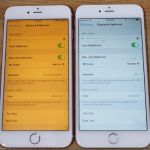
It seems like a very weird concept that light can help you rest easier, but it has to
be a certain type of light.
Light and melatonin production
Most of us only know about the one light that comes on
when you turn on a switch but recently, studies have begun to point to the effect
of exposure to different types of light on melatonin production, this helps us not
only get to sleep, but see how “awake” we are at peak times of the day and in the
long run, whether our health improves or deteriorates.
Blue light keeps you awake
“When it comes to influencing melatonin production and our resultant alertness
or sleepiness, what researchers have been finding is that not all light is created
equal.
Like a rainbow, light comes in different colors, which are transmitted via
the retina of the eye to a mechanism called the suprachiasmatic nucleus in the
hypothalamus area of the brain that’s responsible for regulating our circadian
rhythm.
And though it might seem counter-intuitive, the color that keeps us
awake is blue, while the ones more conducive to sleep are at the red end of the
spectrum.
Blue light at the wrong time of day!
And these days, the light to which we’re exposed at the time our
biological clocks should be getting ready to crank out melatonin tends to be bluer
than ever, due primarily to the many computer-related activities that we tend to
engage in just before bedtime, whether they involve work, fun and games, or
communication and social media, as well as the phasing out of old-fashioned
incandescent bulbs that had more of a reddish glow to them” –
https://www.huffingtonpost.com/dr-mark- hyman/light-sleep_b_4239765.html.
What to avoid
There are ways to adjust your exposure to light that can help set your biological
clock, that works on its own, to a more regular rhythm.
You must stop going to bed with your tablet, smart phone, or e-reader.
Not only do they all emit blue light, but the manner they are used — right up close to your face — makes the
effects of this “alert” light even more powerful.
Get off your computer (it is a device that emits blue light) two to three hours before bedtime.
This is where the helping of light comes into play, you should be getting at least
20 minutes exposure to daylight regularly.
This will help you sleep better at night, enhance melatonin production, and put you in a better mood and more alert
state during the day.







